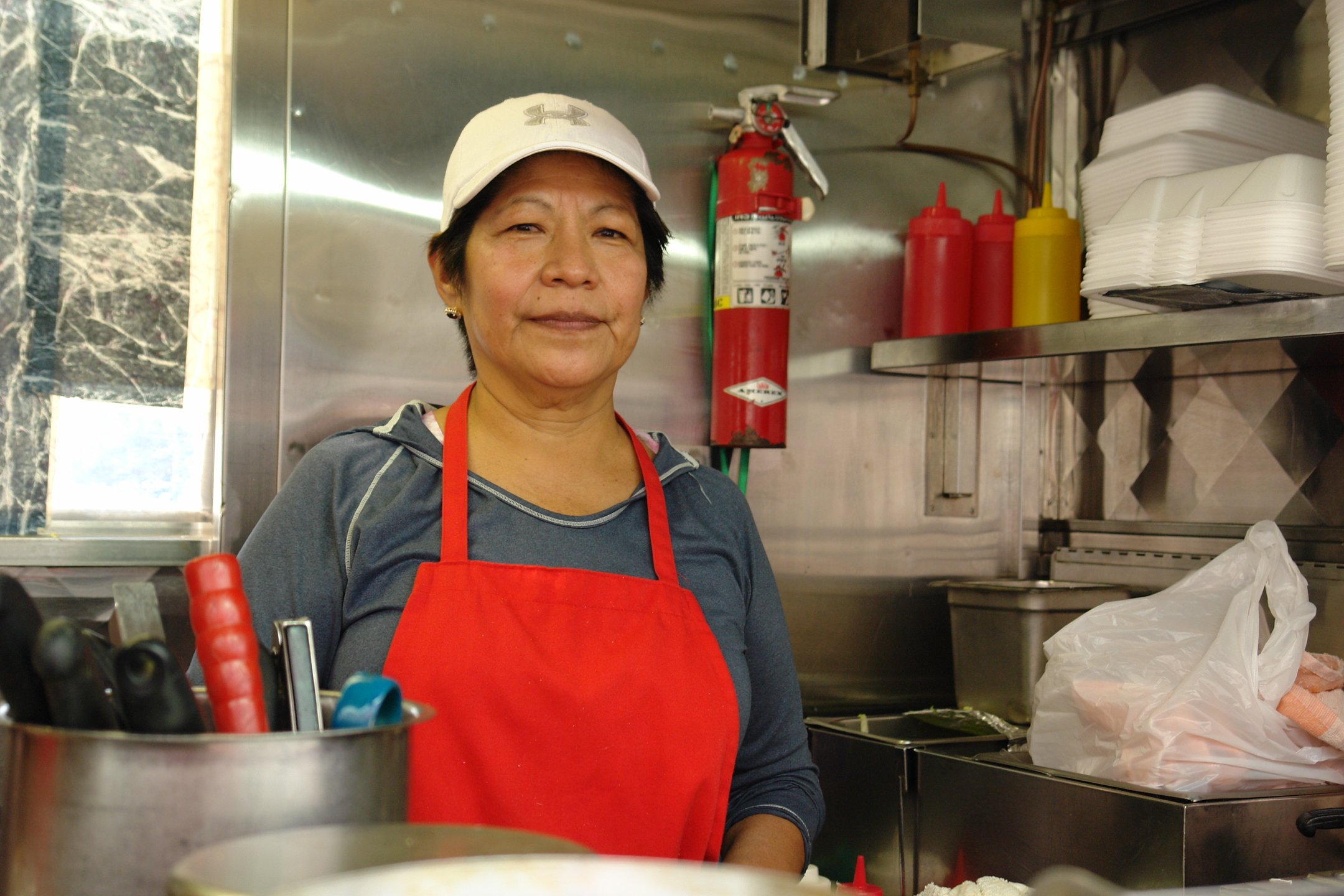Meet Alma
Alma joined Grameen America twelve years ago with a first-time loan of $1,500 to support her mobile food cart in New York, NY. In 2015, Alma decided to take her business to the next level, using a larger loan size to purchase a food truck. To date, Grameen America has invested over $350,000 in Alma’s growing business.
Unable to afford the high cost of a food truck to get her food business off the ground, Alma began looking for alternate options to make her dream come true. In 2012, a friend introduced Alma to Grameen America, starting with a first-time loan of $1,500. Alma slowly grew her mobile food cart business while increasing her loan sizes. In 2015, Alma decided to take her business to the next level, using a larger loan size of $10,000 to purchase a food truck. Today, Alma is repaying a $21,500 loan. Over the past twelve years, Alma has invested the program’s loan capital in food ingredients, fridges, freezers, and kitchen appliances.
“Grameen America offers more than affordable loans. The organization has helped me save for retirement, which is something I hadn’t planned for before. Also, through Grameen Promotoras’ health education workshops, I’ve learned to prioritize health screenings and wellbeing.”
Alma’s food truck serves authentic Mexican food. The most popular items on the menu are tacos, quesadillas, and burritos, which are made with homemade tortillas. Due to permit requirements, the food truck is always parked in the same spot, which means many of Alma’s customers are regulars.
“I love to cook, but my favorite part about my business is that it’s become a family business. My son is the cashier and my grandson helps prepare the food.”
Alma hires six additional employees, including her family members. She also rents a small kitchen space nearby to prepare the food.
“Anyone can say they want to start a business, but learning how to run a business the right way and putting in the hard work are the biggest challenges.”
For Alma, learning how to run a food truck business with the proper permits, licenses, and inspections has been the biggest challenge. During the pandemic, Alma had to stop selling food for three months because the city closed down and adjusted to new city restrictions.
“I hope to open a restaurant space so I can do all the food preparation and cooking in one place. In the future, I plan to pass the business down to my son and grandson.”
Alma pictured in 2015, working in her newly purchased food truck.



